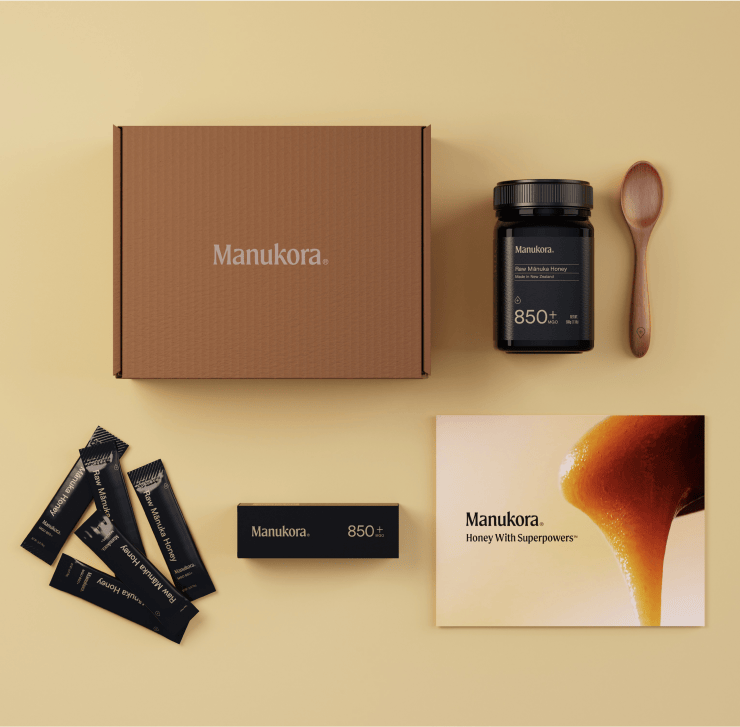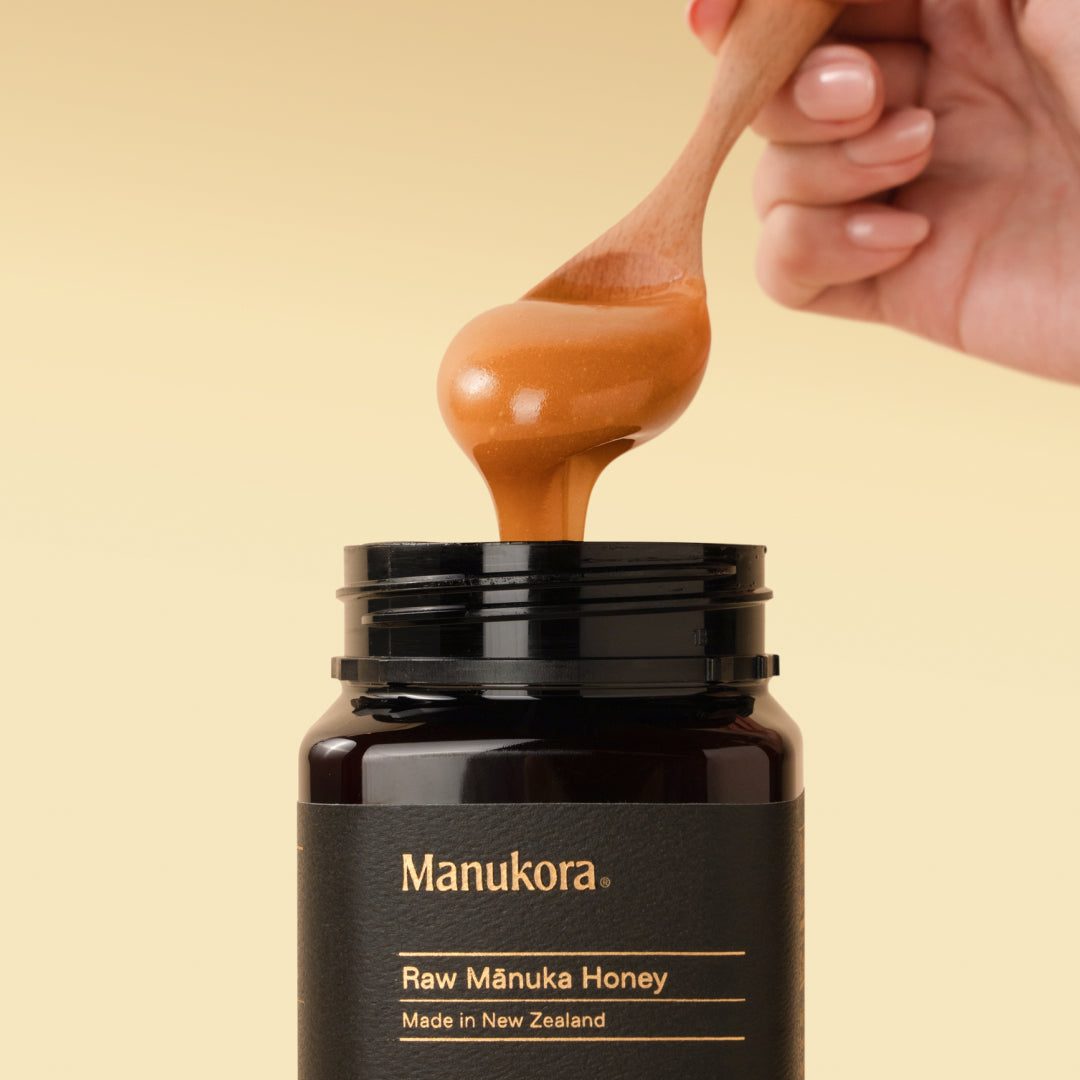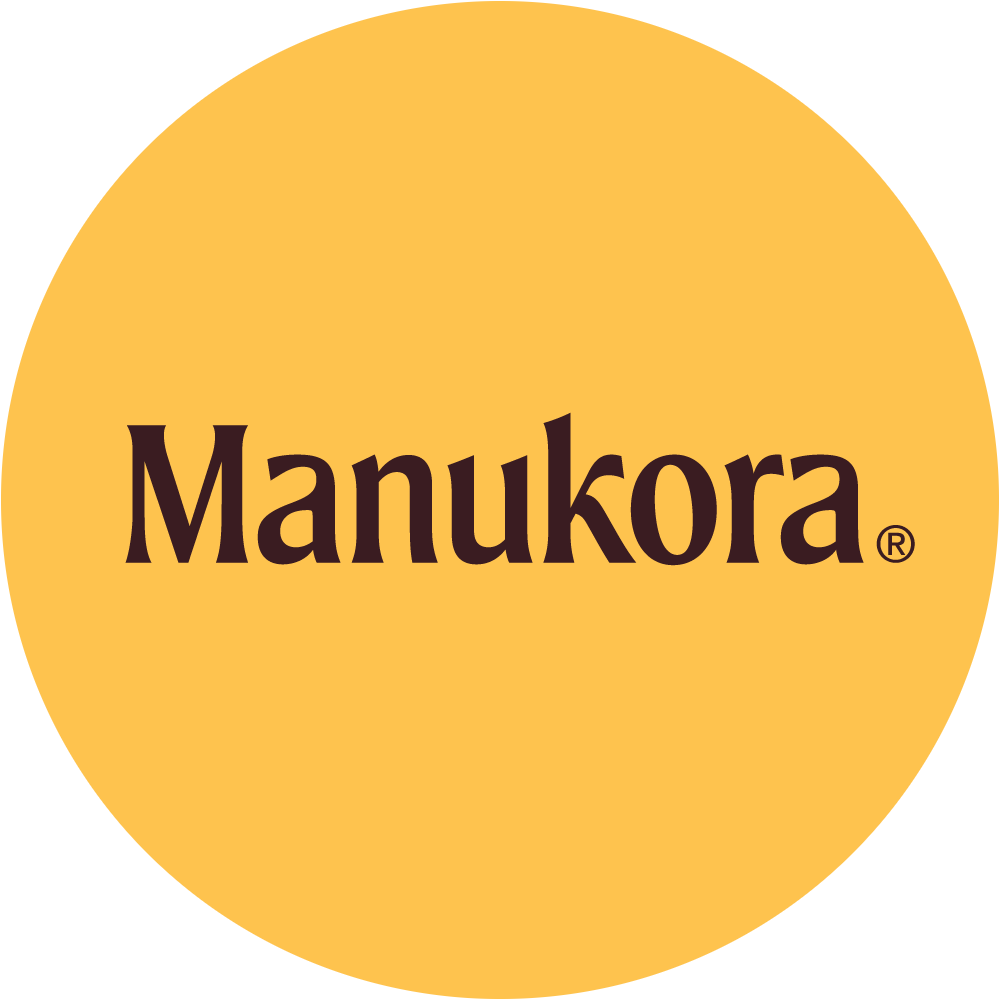Executive Summary:
- Bee pollen (or bee bread) is essentially a combination of flower pollen, enzymes, nectar, and honey that is transported back to the bee hive.
- Bee pollen is home to around 200 substances; these include amino acids, proteins, fatty acids, vitamins, and nutrients.
- The nutrients in bee pollen can support digestive health, immunity, and energy levels. It is also full of vitamins and minerals to boost your everyday diet.
Nutrient Composition of Bee Pollen
|
Nutrient Type |
Percentage |
Benefits |
|
Protein |
22.7% |
Supports muscle repair and growth |
|
Carbohydrates |
30.8% |
Provides energy |
|
Essential fatty acids |
Not listed |
Aids in overall health |
|
Vitamins (B, C, D, E, A) |
Varied |
Boosts immune system and skin health |
|
Minerals (K, Ca, Mg, Zn) |
Varied |
Supports bone health and nerve function |
Should You Add Bee Pollen to Your Lifestyle?
It’s no secret that raw honey has several beneficial nutrients. Still, honey isn’t the only nutritious substance that honeybees produce—the beneficial nutrients in bee pollen are becoming more and more well-known. So, in this article, let's expand our knowledge and learn a little bit more about bee pollen.
What Is Bee Pollen?
Traditional pollen consists of the reproductive particles made by a male flower; bee pollen, on the other hand, is slightly different and offers a broader set of uses.
Bee pollen is vital for the development and longevity of any bee colony. Yet, it's important to note that it's different from honey, royal jelly, and honeycomb, though some people tend to use these terms interchangeably.
Essentially, bee pollen is the pollen collected from male flowers, mixed with a small amount of either nectar or the bee’s salivary enzymes. This allows the bees to ball up nectar and efficiently transport several pollen balls back to the hive.
However, the quality of bee pollen depends on several factors, such as the climate conditions, the flower it is harvested from, and the hive's geographical location. Like honey, this bee item contains beneficial nutrients like amino acids, enzymes, and phenolic compounds.
Before the bees harvest the pollen, it already naturally contains some amount of beneficial nutrients. Once transported to the hive, it is further enriched with a thin layer of honey so it can ferment and turn into a rich protein source for the bees.
The fermented flower pollen becomes the honeybees’ primary protein source. Bees rely on this pollen to feed the entire colony, which is why it’s so important they collect plenty of it. Bees do eventually eat the honey they produce, but before that honey is ready for consumption, they rely on the high protein levels in the pollen to keep them nourished and energized.
Another quick fun fact: If bee hives are placed too close to each other, the hives can become rivals, fighting for the same pollen. At Manukora, our hives are strategically placed to ensure our bees have plenty of resources without stepping on each other's toes.
What Are the Properties of Bee Pollen?
The properties of bee pollen depend on the properties of the harvested plant.
Some plants have particularly nutritionally dense pollen. For instance, willow pollen has a particularly high protein content. On that same note, there are also plants with nutrient-lacking pollen, such as the sunflower, whose pollen offers very low caloric value.
Even more interesting, Western honey bees don’t seem to collect and pack Manuka pollen like other types of pollen. While it still brushes onto their body, we’ve yet to see our honey bees actually pack their pollen into balls for transport.
How Is Bee Pollen Harvested?
Pollen is brought to the hive by the worker bees. When they’re out collecting nectar, the pollen from the plants either attaches by mere contact to their legs and bellies or is packaged for transport as mentioned earlier. This makes it quite difficult for beekeepers to harvest pollen directly since they’d have to do so from the bees’ hind legs.
With that in mind, beekeepers often place small traps at the hive entrance; as the bees come and go, the pollen on their legs then brushes off and is collected in a small pan underneath. The pan isn’t actually inside the hive and is usually easy to slide out for easy access and convenience.
What Makes Bee Pollen So Special?
Bee pollen is home to around 200 beneficial nutrients; these include amino acids, proteins, fatty acids, vitamins, and nutrients. Adding bee pollen to your diet means incorporating these nutrients into your diet too (albeit in small amounts).
What Are the Health Benefits of Bee Pollen?
Bee pollen is gaining a reputation as one of nature's best-kept secrets. This attribution as a superfood is most likely due to its concentration of amino acids, not to mention its slightly sweet, floral taste and mild crunch.
Learn about bee pollen’s beneficial nutrients below and why this up-and-coming superfood is taking the world by storm.
1. Bee pollen is a nutrient-rich food.
A balanced diet with plenty of nutrients is the first step to supporting energy levels and overall wellness. However, sometimes it's nice to have a go-to and easy option for when you need it or when you don't have access to fresh foods, such as when camping or hiking.
Bee pollen contains vitamins like B, C, D, E, and A, as well as minerals like potassium, calcium, magnesium, and zinc. Bee pollen is also a wonderful source of essential amino acids. These amino acids include tryptophan, lysine, and valine—all amino acids that your body cannot make on its own but needs in order to function properly.
The nutrients in bee pollen also offer energizing effects similar to those found in honey. In fact, bee pollen contains about 22.7% protein, 30.8% carbohydrates, and loads of essential fatty acids.
2. The nutrients in bee pollen support healthy immunity.
Some studies suggest that the nutrients in bee pollen have potent anti-inflammatory properties. Plus, bee pollen contains polyphenols and flavonoids, which act as antioxidants and can help protect your body from oxidative stress caused by free radical damage.
The nutrients in bee pollen can also support a healthy immune response due to its unique natural cocktail of vitamins and minerals. Plus, studies have shown that the compounds in bee pollen may help soften allergic reactions.
However, it’s important to note that bee pollen can also trigger allergic reactions if you are allergic to certain seasonal plants or weeds. If you have allergies, it’s best to consult your primary care physician before incorporating bee pollen into your daily routine.
3. The nutrients in bee pollen support overall wellness.
The nutrients in bee pollen may support the body's natural detoxification processes. For instance, certain nutrients have been shown to have significant effects on various toxins.
4. Bee pollen nutrients support a healthy metabolism.
The nutrients in bee pollen may promote healthy blood sugar levels, which can support metabolic function.
What Are the Best Ways to Eat Bee Pollen?
If you've never heard of bee pollen before reading this article, eating it might sound a little strange. However, it can add a delightful and delicious twist to any dish, adding a slightly sweet, floral flavor.
So, here are a few ways to indulge in its sweet crunch:
- Add it to your breakfast. Bee pollen granules are a great way to supercharge your breakfast. You can sprinkle them on yogurt, oatmeal, or even toast.
- Make granola. If you make your granola yourself, you can add a spoonful or two of bee pollen to your next batch.
- Put it in your coffee or tea. Like honey, bee pollen has a sweet bite; it can be a wonderful refined sugar alternative, especially if you only want a subtle hint of sweetness in your drink.
- Blend it in your smoothies. Smoothies can be a great source of vitamins and minerals when made with the right ingredients. Then, adding a pinch of bee pollen to that ingredient list can make that smoothie even more nourishing—plus, it’ll make it a tad sweeter, too.
- Upgrade your honey mustard. Honey mustard is delicious, but you can make it a little bit more nutritious and sweet by stirring in a sprinkle of bee pollen.
How Much Pollen Is Too Much?
There’s no standard amount of pollen someone should consume daily. However, many people start with about a quarter of a teaspoon and gradually increase as desired to a max of about two tablespoons per day.
Is Bee Pollen Safe?
In short, bee pollen is generally safe for most people to consume. Since bee pollen is treated as a dietary supplement in the U.S., it's best to ask your healthcare provider if you have questions about possible interactions with other medications or supplements, or if bee pollen is generally a good fit for you and your lifestyle.
With that said, there are a few reasons why bee pollen may not be a good fit for you:
- You should avoid bee pollen if you have a known allergy to honey or other bee products.
- If you have any type of pollen allergies, bee pollen may also give you trouble.
- You should also avoid bee pollen if you take blood thinners.
- If you’ve ever experienced an allergic reaction (especially anaphylaxis) due to a bee sting, then bee pollen probably isn’t for you.
If you think you’re having an allergic reaction after consuming bee pollen, contact your doctor or seek medical help immediately. Signs of an allergic reaction include itchiness, swelling, hives, and shortness of breath.
Lastly, like honey, bee pollen shouldn’t be given to small children or babies. Consult a doctor before taking bee pollen if you’re pregnant or breastfeeding.
In Conclusion
Bee pollen is another gift from the bees that not only offers a subtly sweet, floral flavor that can elevate a dish or drink but can also serve as a source of nutrition thanks to its energy-boosting carbohydrates and fueling proteins.
Our Manuka Honey Collection at Manukora not only complements the subtle flavors of bee pollen but also adds a unique depth to any culinary creation. To truly appreciate the richness of Manuka honey, consider using the specially designed Manukora Dose Spoon, which ensures the perfect amount every time.
For those looking to delve deeper, our Manuka Honey MGO 600+, MGO 850+, and MGO 1000+ offer delightful taste experiences, rich in the very nutrients that make Manuka honey stand out. If you're curious about the best ways to use this honey, especially when it's crystallized, our guide on How to Soften Honey is a great resource.
Furthermore, the differences between Manuka and regular honey are quite fascinating, as detailed in our article comparing Manuka vs. Regular Honey. To understand the source of its uniqueness, learning about the Manuka Tree is essential. Lastly, for those interested in the health aspects, our insights on Manuka Honey Wellness offer valuable information.
While we don’t have any Manuka pollen to offer yet, our authentic Manuka honey is uniquely rich in beneficial nutrients and offers a much more intense sensory experience than bee pollen ever could!
You can learn more about Manuka honey and its benefits here, or head here to check out the Manukora blog for more informational articles about bees and all things honey!
FAQs
1. What's the difference between regular flower pollen and bee pollen?
While traditional flower pollen consists of the reproductive particles made by a male flower, bee pollen is a unique combination of flower pollen, enzymes, nectar, and honey that bees collect and transport back to their hive. It has a broader set of uses and benefits compared to typical flower pollen.
2. How does the quality of bee pollen vary from one location to another?
The quality of bee pollen can be influenced by several factors such as climate conditions, the specific flowers it is harvested from, and the geographical location of the hive. Different conditions and flowers can produce bee pollen with varying nutrient profiles and benefits.
3. Are there any safety concerns or precautions to be aware of when consuming bee pollen?
While bee pollen is generally safe for most individuals, those with known allergies to honey, other bee products, or certain pollens might experience allergic reactions. People taking blood thinners, those who've had severe allergic reactions to bee stings, and young children should avoid bee pollen. It's always recommended to consult with a healthcare provider before introducing bee pollen into your diet.
4. How do beekeepers collect bee pollen without harming the bees?
Beekeepers use small traps placed at the hive entrance. As bees come and go, the pollen on their legs brushes off and is collected in a pan underneath. This method ensures minimal disruption to the bees and doesn't harm them.
Sources:
Traditional and Modern Uses of Natural Honey in Human Diseases: A Review - PMC.
Uncertainties continue around use of bee pollen | OSF HealthCare














